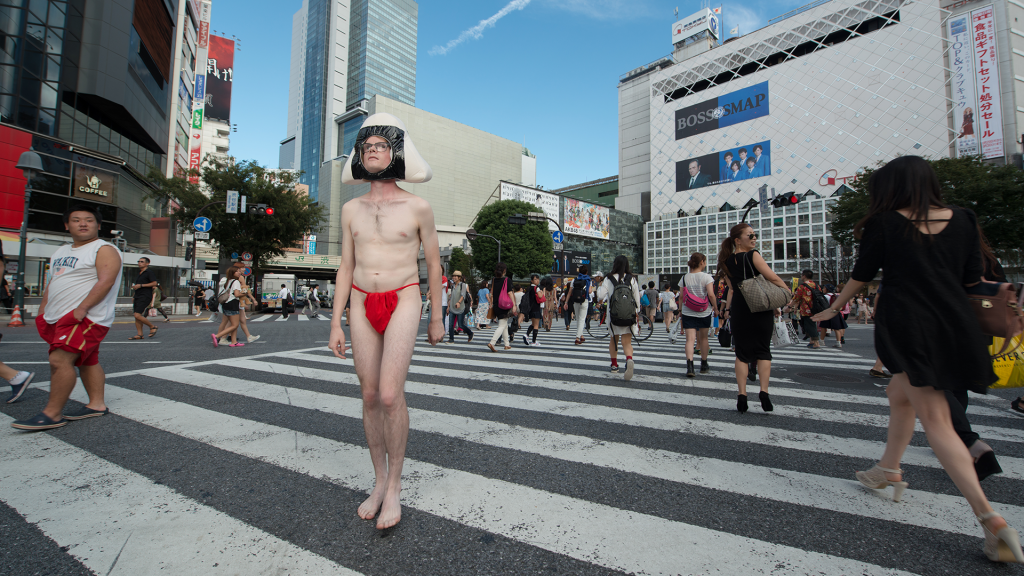
“If you’re building fame from scratch, you need to network as much as possible and get yourself out there in a grass roots sort of way,” begins Big In Japan co-director and star David Elliot-Jones.
Having spent the past few years trying figure out the celebrity formula with the upcoming documentary, he’s picked up a few tricks along the way.
“You have to be entertaining in some way,” he stresses, and the company he surrounded himself with on his quest to become famous in Japan backs up that claim.
Elliot-Jones and fellow filmmakers Lachlan McLeod, Louis Dai uprooted their lives and relocated to Japan for two years while filming the doco, spending a lot of time with Australian cross-dressing heavy metal singer Ladybeard, aspiring J-pop idol Kelsey Parnigoni and American fighter and Japanese TV superstar Bob ‘The Beast’ Sapp.
“Before Big In Japan, we were exploring this idea of fame and it was something we discussed as the three of us; we were fascinated with the topic and I think it’s because in the 10 years prior, we’d seen celebrity transform from being something that was gate-kept and reserved for people who actually had talents to the sudden arrival of reality TV.”
“We saw that ordinary people were allowed a slice of celebrity, and also social media sprouted up in big way in those 10 years and that was a huge part of our lives – Facebook arrived in our first year at uni.”
Japan was chosen when the trio realised there was a parallel going on that had been active for years. Their initial plan was fairly simple – lock down a foreign talent agent and then use the Internet to their advantage and do something outrageous to explore fame and try to make Elliot-Jones a celebrity. “They were the foundations, but the rest of it were little tactics that we threw in there as we found inspiration along the way,” he explains.
It’s an interesting thing to try and plan out, because at the end of the day, if people see that’s what someone is trying to do, they might switch off or not engage. People more often than most want to think they’re discovering something special on their own, and not part of an experiment. “Totally,” he says, “People don’t want to be played.”
The team was well aware of that, which is why one of his online personas, Onigiri Man, was a character that was hell-bent on becoming famous; he’s also hard to miss in a crowd, wearing nothing but a plush sushi headpiece and red long cloth. “I went to Comiket with a sign over my head that said, ‘If I get a thousand followers in a day, I’ll take off the long cloth’ and I photobombed a whole bunch of other cosplayers in the arena. Its success was a combination of that upfront approach and also being discovered in the background of some photo.”
So, did it work? “I kind of don’t want to answer that question,” he laughs, telling it’d be a Big In Japan spoiler, but Elliot-Jones does reveal how the experience changed his perception of fame. “I used to think of it as something you either enjoyed or you didn’t – you either wanted or didn’t, but it’s much more nuance than that. It changes you; I think that’s the better way to think of it. For better or worse, your life will never be the same once you have it.”
“Some people are okay with that, embrace it and go into it with their eyes open, but other people lose a lot of freedom as a result of it. I feel as a culture, we only really explore fame in a really two-dimensional way; we sort of celebrate it a little bit, but we don’t like to acknowledge the full picture.”
Proudly presented by Supanova, Big In Japan will tour Australia in January with special Q&A screenings across January. Click here for dates and ticketing information.









